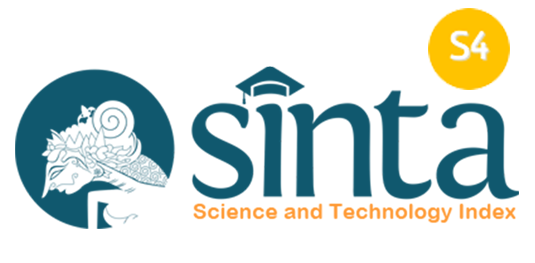Integration Of Pedagogical And Technical Knowledge In Diagnosing Preparation For Professional Activity
Abstract
Keywords
Full Text:
PDFReferences
Anvarovna, Z. K. (2023). Modern approach of scientists to the problem of" pedagogical diagnostics". JournalNX, 9(11), 216-220.
Asad, M. M., Aftab, K., Sherwani, F., Churi, P., Moreno-Guerrero, A. J., & Pourshahian, B. (2021). Techno‐Pedagogical Skills for 21st Century Digital Classrooms: An Extensive Literature Review. Education Research International, 2021(1), 8160084.
Cheng, S. L., Chen, S. B., & Chang, J. C. (2021). Examining the multiplicative relationships between teachers’ competence, value and pedagogical beliefs about technology integration. British Journal of Educational Technology, 52(2), 734-750.
Demchenko, I., Maksymchuk, B., Bilan, V., Maksymchuk, I., & Kalynovska, I. (2021). Training future physical education teachers for professional activities under the conditions of inclusive education. BRAIN. Broad Research in Artificial Intelligence and Neuroscience, 12(3), 191-213.
Khimmataliev, D. O., Khakimov, J. O., Sharipova, S. S., Turaev, M. F., Gofirov, M. J., & Murodova, Z. Q. (2021). Formation of didactic competence of students as a pedagogical problem. Annals of the Romanian Society for Cell Biology, 25(4), 7552-7567.
Khimmataliev, D., Omonova, N., Jumanova, G., & Mamatkulova, G. (2023). Development of creative communicative skills of future educators as a pedagogical problem. Science and innovation, 2(B12), 211-216.
Khodjayev, B., & Bobojonova, N. (2023). The role and importance of independent education in the development of students'intellectual potential and socio-cultural competence. Science and innovation, 2(B3), 178-181.
Kramer, M., Förtsch, C., Boone, W. J., Seidel, T., & Neuhaus, B. J. (2021). Investigating pre-service biology teachers’ diagnostic competences: Relationships between professional knowledge, diagnostic activities, and diagnostic accuracy. Education Sciences, 11(3), 89.
Kramer, M., Förtsch, C., Boone, W. J., Seidel, T., & Neuhaus, B. J. (2021). Investigating pre-service biology teachers’ diagnostic competences: Relationships between professional knowledge, diagnostic activities, and diagnostic accuracy. Education Sciences, 11(3), 89.
Msafiri, M. M., Kangwa, D., & Cai, L. (2023). A systematic literature review of ICT integration in secondary education: what works, what does not, and what next?. Discover Education, 2(1), 44.
Nagima, B., Saniya, N., Gulden, Y., Saule, Z., Aisulu, S., & Nazigul, M. (2023). Influence of special learning technology on the effectiveness of pedagogical ethics formation in future teachers. Journal of Education and E-Learning Research, 10(1), 1-6.
Rieu, A., Leuders, T., & Loibl, K. (2022). Teachers’ diagnostic judgments on tasks as information processing–The role of pedagogical content knowledge for task diagnosis. Teaching and Teacher Education, 111, 103621.
Rieu, A., Leuders, T., & Loibl, K. (2022). Teachers’ diagnostic judgments on tasks as information processing–The role of pedagogical content knowledge for task diagnosis. Teaching and Teacher Education, 111, 103621.
Weisberg, L., & Dawson, K. (2023). The intersection of equity pedagogy and technology integration in preservice teacher education: A scoping review. Journal of Teacher Education, 74(4), 327-342.
Yashchuk, S., Shapran, O., Martirosian, L., Petukhova, T., Artemieva, I., & Kolisnyk-Humenyuk, Y. (2021). Pedagogical design of the content of professional training of teachers of general technical disciplines and methods of teaching technology. Brain. Broad research in artificial intelligence and neuroscience, 12(1), 278-299.
DOI: https://doi.org/10.17509/jassi.v24i2.83263
Refbacks
- There are currently no refbacks.
Copyright (c) 2025 Universitas Pendidikan Indonesia

This work is licensed under a Creative Commons Attribution-ShareAlike 4.0 International License.




